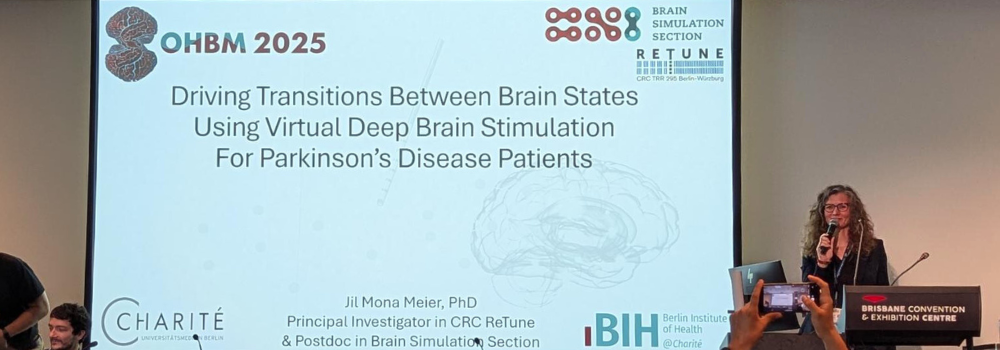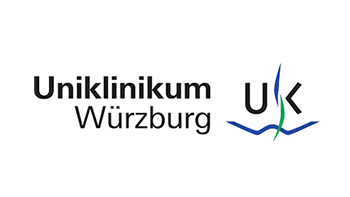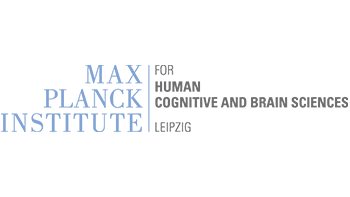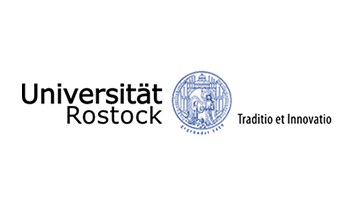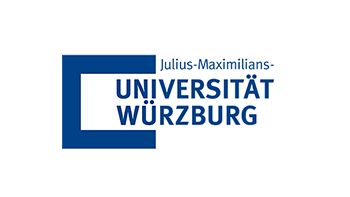Aug 20, 2025
Jil Meier Presents Virtual DBS Research at OHBM 2025 in Australia
At the 2025 Annual Meeting of the Organization for Human Brain Mapping (OHBM) in Brisbane, ReTune researcher Dr. Jil Meier presented results from Project B01, focusing on the use of virtual brain models to optimize deep brain stimulation (DBS) in Parkinson’s disease.
In her talk, titled “Driving transitions between brain states using virtual deep brain stimulation for Parkinson’s disease patients”, Dr. Meier demonstrated how The Virtual Brain simulation platform can model the effects of DBS across individual brain networks. Her latest work extends the virtual DBS model to incorporate the precise 3D location of electrode contacts, streamline activations, and the simulated electric field. In a dataset of 14 Parkinson’s patients and 392 stimulation settings, the model was able to predict motor task outcomes with higher accuracy than traditional imaging-based methods.
The findings suggest that these “sweet dynamics”, as defined by simulated brain states closer to healthy function, can serve as reliable predictors of clinical improvement. The model even outperformed trial-and-error programming in identifying optimal stimulation settings – an advance that could help guide future in silico tools for clinical DBS programming.
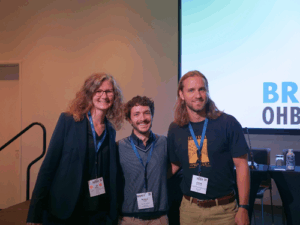
© Lion Deger
Dr. Meier presented her research as part of a joint symposium titled
“Integrating empirical and computational approaches to drive brain towards healthy dynamical regimes”, organized by Dr. Jakub Vohryzek (right), Dr. Andrea Luppi (middle), and Dr. Yonatan Sanz-Perl. The session brought together experimental and computational work across species and techniques –including fMRI, MEG, DBS, and pharmacological interventions – highlighting the potential of computational modeling to simulate and guide transitions between brain states in health and disease.
This work is a direct result of ReTune’s Project B01 based on a large team effort of colleagues from the Brain Simulation Section, led by Prof. Dr. Petra Ritter, together with collaborators in the lab of Prof. Dr. Andrea Kühn and serves as preparation for an upcoming clinical pilot trial. It illustrates the emerging potential of digital brain twins to support faster, more personalized DBS programming in Parkinson’s treatment.
© Picture: Danielle Kurtin


